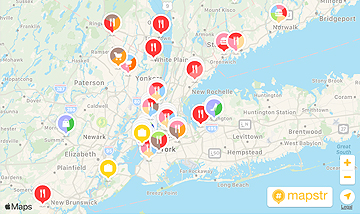Situation in the Sahel
Paris, February 21, 2012
This is the fourth crisis relating to the Tuareg issue since [Mali’s] independence. (…)
The rebellion is unsettling the Malian authorities and there were even fears, a few weeks ago, that a coup d’état would lead to President ATT [Amadou Toumani Touré] giving up power to begin a transition phase.
I for one don’t envisage a democratic transition; the election timetable must be respected. The first round of the presidential election is scheduled for 29 April.
What’s the government’s view been on this situation? We believed it was legitimate for us to intervene, as much because of the historical relations linking us to Mali, Niger, Mauritania and Algeria as because of our own interests, and particularly because of our six hostages who are still being detained in northern Mali. This is why I was keen to pay an on-the-spot visit to analyse the situation with my counterparts and make an accurate assessment of the issues at stake and the positions of each of the parties. I informed my Algerian counterpart of all these consultations. Algeria is a country which can’t be ignored in the search for a political solution. She’s also sponsored the previous agreements and would obviously like to be at the forefront when it comes to resolving this new crisis. I told everyone I spoke to that France’s position was based on three principles: respect for Mali’s territorial integrity, the establishment of an immediate ceasefire and adherence to the election timetable. Indeed, I fear that postponing the election would weaken Mali’s democratic institutions. I actually believe that the key to resolving this crisis lies in respecting the election timetable, which has to produce a new president, legitimated by an election. In this context, the Malian President – who isn’t running again – believes Algeria has a special role to play and that France must also, in her own way, help facilitate a solution to the crisis.
Mauritania has offered her support in mediating a constructive dialogue with the MNLA [Azawad National Liberation Movement]. Algeria shares France’s position on the principles I’ve just mentioned and is calling for negotiations to be organized with a limited number of players, whilst ensuring that the negotiation process isn’t paralysed by too many diplomatic initiatives. The first steps towards dialogue were taken at the beginning of February with Tuareg representatives not belonging to the MNLA. This so-called “Algiers process” should continue, and even though the MNLA hasn’t officially taken part in the Algiers meeting, we know it’s following the discussions.
I emphasized to my Algerian counterpart that France was in no way engaging in competition with Algeria, whose role was unignorable and undisputed. I told him we were able to back the Algiers initiatives and to try and get the Malian authorities and the MNLA to promote a constructive dialogue leading to a ceasefire recognized by everyone. In the meantime, the humanitarian situation is deteriorating: fighting has already resulted in over 60,000 displaced people in Mali and 50,000 refugees outside the country. So a political solution must urgently be found to avoid a humanitarian tragedy. (…)
During my recent visit to Mali, I actually met several presidential election candidates, including the President of the National Assembly, Mr Traoré, former prime minister Mr Sidibé Modibo and Mr Soumaïla Cissé, the former secretary-general of UEMOA [West African Economic and Monetary Union], who comes from Timbuktu. All agree on the need for adherence to the election timetable and for a swift ceasefire. Only one member of the present government has spoken in favour of postponing the election (…)./.















